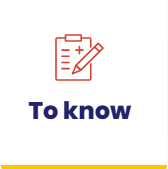
What criteria must medicines meet before they reach our pharmacies? How can we be sure that they are effective, safe and reliable? Who approves and monitors them? Whatever the country, for obvious health safety reasons, medicines must obtain a marketing authorization (MA) before they can be marketed.
Here are six key points to keep in mind about marketing authorizations.
1/ What is a marketing authorization and who issues it?
A marketing authorization (MA) for a medicine is the approval to market it that is granted once its benefit-risk ratio has been assessed by the relevant health authorities.
If a pharmaceutical company wishes to market a medicine, it must submit a marketing authorization application to the competent health authorities in the target country or region. The request takes the form of an application file, or ‘dossier’, in which pharmaceutical, preclinical and clinical quality data from the development phases are compiled.
An MA certifies that the risk-benefit ratio is positive for the claimed indication. The health authorities that authorize medicinal products by issuing marketing authorizations (which they may also suspend or withdraw) monitor and supervise them.

A conditional MA may be granted subject to conditions, for a limited period, on the basis of assessment data that is still incomplete. It is granted if the benefit-risk ratio is positive and there are no equivalent medicinal products.
2/ MA: Who assesses a medicine’s efficacy and safety?
Marketing authorization applications submitted by a pharmaceutical company are assessed by the health authorities of the relevant country or region: the European Medicines Agency (EMA) in Europe, the Food and Drug Administration (FDA) in the United States, and so forth.
The primary mission of these authorities is to assess the quality, the benefits and the risks of medicines, to guarantee that they are safe throughout their life cycle, and to monitor adverse effects.
3/ What is required in the regulatory dossier of a medicine to register for an MA?
The requirements for an MA dossier are harmonized (e.g. international guidelines from the International Council for Harmonization – ICH), although some countries may have specific national requirements (e.g. data on ethnic factors, national guidelines on development requirements).
This way, no matter the registration procedure (national, regional), in order to obtain marketing authorization the pharmaceutical company is required to submit a detailed dossier that includes:
- A quality section: data on the chemical, biological or microbiological quality of the medicinal product, manufacturing processes (production of raw materials, industrial production of the medicinal product, control procedures, etc.);
- A safety section: pharmacological, toxicological and pharmacokinetic data from preclinical and clinical studies;
- An efficacy section: all of the results from studies carried out in humans to define the exact conditions of use of the medicinal product and to establish its benefit-risk ratio.

In the case of generic medicines, studies must be submitted regarding bioequivalence1 with the original medicine.
4/ Criteria that must be met to obtain a marketing authorization
The issuance of an MA is based on an examination of the medicinal product’s benefit-risk balance for the claimed indication and more precisely on the examination of:
- pharmaceutical quality: composition, stability, sterility, large-scale reproducibility, etc.;
- safety of use: foreseeable adverse effects associated with its use and their frequency, precautions for use, etc.;
- demonstration of its pharmacological efficacy with regard to: the intended indications (the disease(s) targeted by the medicine), the profile of the patients for whom it is intended, and the recommended dosage (dose, duration of treatment).

If the medicine proves to be effective and safe, it should be assumed that depending on the country, it will take 1 to 3 years between the time that the registration dossier is submitted to the health authorities and when the marketing authorization (MA) is obtained.
5/ How can the reliability of a medicine be ensured?
Systematic measures govern correct use of the medicine as soon as it is placed on the market. When an MA is granted, the health authorities must specify the specific conditions of use applicable to the medicine:
- the information contained in the Product Information (PI) for health care professionals or in the patient package insert;
- its packaging (labeling);
- the conditions for prescribing and dispensing.
6/ What happens once the marketing authorization is granted?

MAs are issued for a limited initial period. Depending on applicable regulations, they may subsequently be renewed indefinitely, unless the health authorities decide to re-evaluate them, notably for reasons relating to pharmacovigilance.
The MA for a drug may be subject to changes, imposed by the health authorities (e.g. addition of a new adverse reaction, precautionary statement) or on the initiative of the pharmaceutical company (e.g. addition of a new adverse reaction, precautionary statement, new indication, new dosage, change in the production process, etc.). These changes, which have an impact on the application on the basis of which the MA was granted, are made after submission of a change dossier, which is assessed by the health authorities.
Lastly, an updated pharmacovigilance report, or Periodic Benefit-Risk Evaluation Report (PBRER), is what makes it possible to monitor the safety of the drug. This report is produced at predetermined dates by the competent health authorities, after the marketing authorization has been granted for the medicine in question.
Early access: The case of medicinal products that may be prescribed exceptionally without an MA
A medicine is usually only prescribed after an MA has been issued by the health authorities on the basis of a positive benefit-risk ratio. For certain rare, serious or incapacitating diseases, patients who have reached a therapeutic impasse may benefit, on an exceptional basis, from innovative treatments that do not yet have an MA, for a specific therapeutic indication. In such cases, health authorities authorize early access to a medicine on a temporary and exceptional basis.
Reference:
[1] Bioequivalence between brand-name and generic medicines means that the quantity of active ingredient available (reaching the bloodstream) and the speed at which it reaches the bloodstream are identical (Source: French Ministry of Health and Prevention).
NRD24-INST-ADV-037 09/2025



